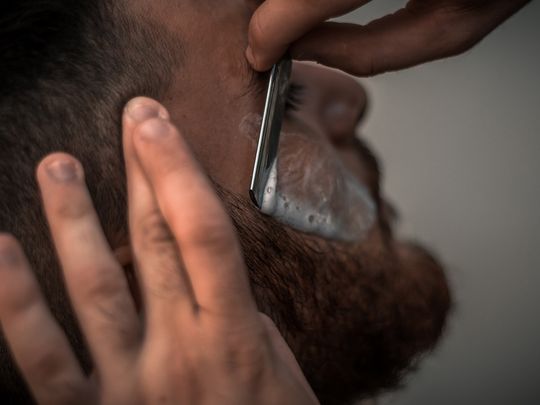
Movember is here – it’s a month dedicated to the growing of moustaches to raise awareness of men’s health issues. Men’s facial hair has a long, weird history, and perhaps its biggest turning point came about 2,000 years ago.
Click start to play today’s Spell It, where we ‘piece’ together interesting tidbits from history to get an overview of men’s love-hate relationship with beards and moustaches.
In his 2015 book, Of Beards and Men: The Revealing History of Facial Hair, American historian Christopher Oldstone-Moore described a scene that occurred over 2,000 years ago. The renowned Macedonian commander Alexander the Great and his troops were preparing for battle in Asia. He soon came to learn, however, that his forces were outnumbered by at least five to one.
In order to reassure his troops, Alexander issued a command – although it was quite bizarre. He told his men they all needed to shave, because it was too easy for their foes to grab their long, Macedonian beards. This move, along with a surprising victory on the battlefield, cemented a new trend among Greek and Roman men – no facial hair. It lasted for the next 400 years!
But Alexander the Great wasn’t the first to create a no-facial-hair trend. Shaving beards and moustaches dates back to the ancient Sumerians and Egyptians, who used razors made from copper and bronze. Still, most men favoured beards – shaving was often considered to be a tedious, and sometimes even unsafe, task.
The connotations behind facial hair may also have something to do with why most men chose to keep it. A strong beard and large moustache was often considered a sign of masculinity and patriarchal power. For instance, the pharaoh Hatshepsut (who was a woman) donned an artificial beard when she ruled Egypt for over two decades.
Religious reasons and and cultural traditions also play a role in the growing of facial hear.
But there were other, less reasonable lines of thought around it, too. According to a November 2023 report in the National Geographic, in the year 1160, the German abbess Hildegard of Bingen suggested that the reason facial hair occurred around the mouth (rather than, say the forehead) was because of men’s ‘hot breath’.
And when, in the 19th century, shaving was back in fashion again, Louis Pasteur’s germ theory helped convince most men that being clean shaven was a more hygienic way of living. In a 1907 experiment, one French scientist even noted that men’s moustaches were “polluted with tuberculosis and diphtheria bacteria, as well as food particles and a hair from a spider’s leg”. Other studies at the time concluded that clean shaven men were less likely to develop colds, and that soap worked better on a hairless face than it did on a hairy one. There is no actual medical evidence to suggest this is true, of course.
Fast forward to 2023, and facial freedom is giving more men around the world the choice to groom themselves as they like. Beards and moustaches have grown more fashionable, and there are hundreds of grooming products out there to ensure they remain so. How will facial hair fare in the next century?
What do you think? Play today’s Spell It and let us know at games@gulfnews.com.









